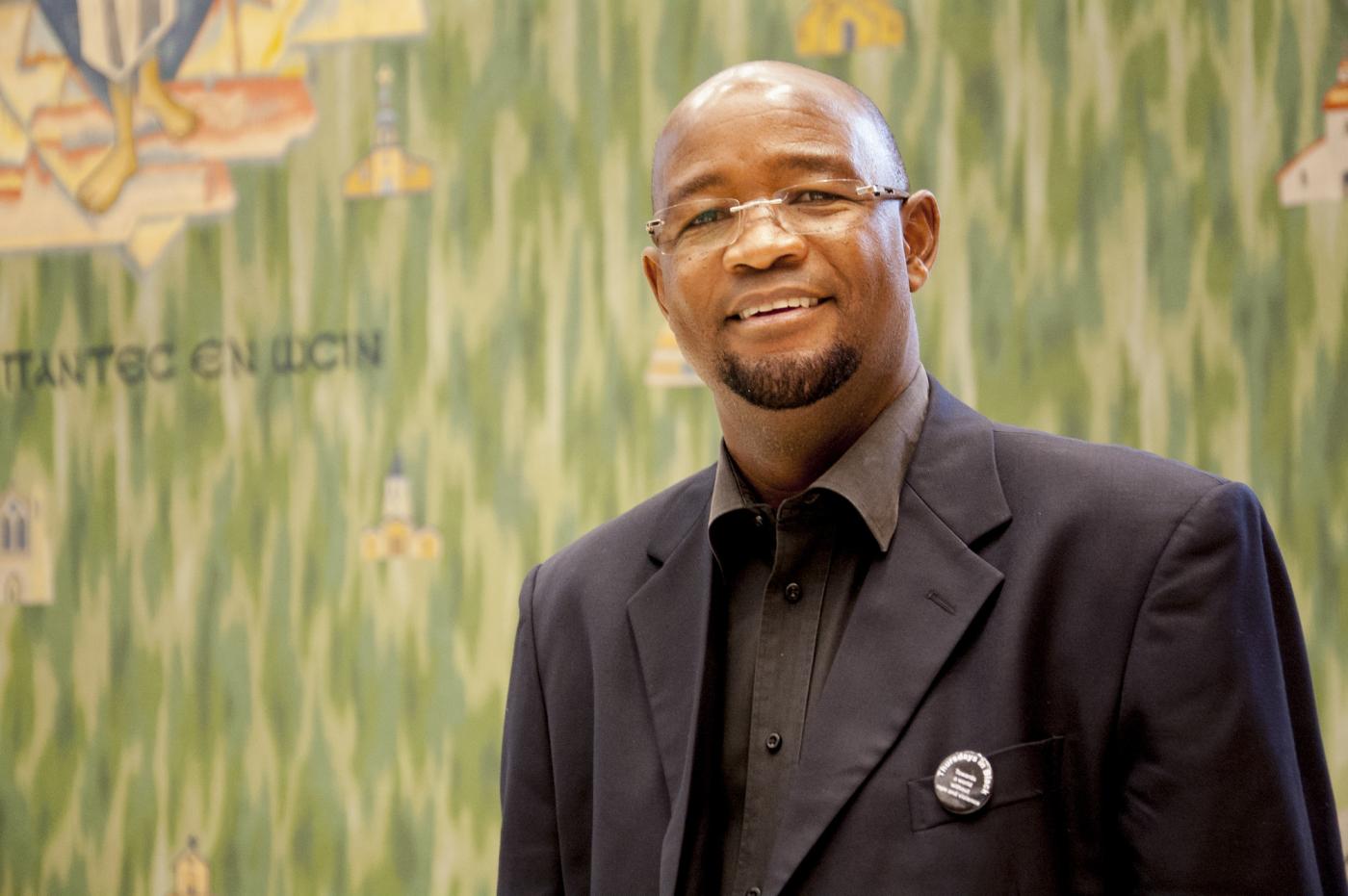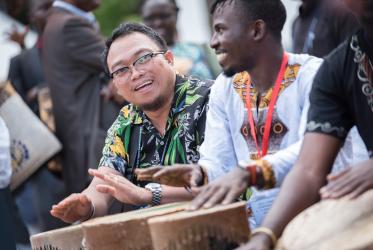“HIV and AIDS is not just a challenge for governments but for all segments of society, including churches. In many African countries churches are an authority that people listen to – it is therefore crucial that churches help eliminate the pandemic,” said Rev. Dr Luciano Chanhelela Chianeque in an interview conducted with the WCC News.
Coming from Angola, Chianeque works as regional coordinator for Lusophone or Portuguese-speaking Africa for the Ecumenical HIV and AIDS Initiatives and Advocacy (EHAIA). A theologian and author of publications including A Biblical Mandate for Social Change and The Angolan Conflict, Creation of Knowledge in Africa in the Face of Globalization, Chianeque’s experience of working on HIV and AIDS related issues spans a number of years.
EHAIA, a project of the World Council of Churches, promotes HIV competence among churches. It works with theological institutions to integrate and mainstream the theme of HIV into theological curricula while addressing the root causes of the pandemic.
In his interview, Chianeque stressed that dealing with health issues should be a top priority for the churches. He said churches are not only challenged by issues of faith, but also with issues of economic, social, political, psychological, moral and spiritual significance.
Chianeque shared that the EHAIA activities in Lusophone Africa have created a positive response in the communities. “Activities conducted by EHAIA are relevant in the sense that very little has been done in the area of HIV. Churches, our main partners, still need to do much more to address the HIV issue to support their communities,” he said.
For Chianeque, changing behaviours that create stigma is all-important. He recalled, “Once I was invited in Luanda, district of Palanca, to train pastors on how to deal with the issues of HIV. While I was explaining what HIV is and the ways of transmission, one of the participants got up and said that HIV was an ‘illness of bad people and not of the good Christians’”.
This kind of mind-set, Chianeque said, needs to be challenged. “Such perception of HIV by the church leaders is not uncommon.”
“It is due to such attitudes that those who are affected by HIV lack the courage to come up and disclose their status,” he added.
Chianeque said that EHAIA is scaling up capacity building with church leaders and simultaneously working with adolescent youth and women regarding reproductive health.
“Through our programmes, we are promoting transformative, life-affirming theologies. We are teaching contextual Bible Study related to gender and human rights. Our targeted groups also include members of sexual minority communities,” he explained.
Chianeque feels that for the churches to deal effectively with HIV, it is essential that they overcome differences. Unity among churches is, for him, the key to success in HIV and AIDS initiatives carried out by ecumenical bodies in Africa and beyond. He said, “As the African saying goes: ‘If you want to go quickly, go alone, and if you want to go far, go with others’.”
More information on the Ecumenical HIV and AIDS Initiatives and Advocacy (EHAIA)









